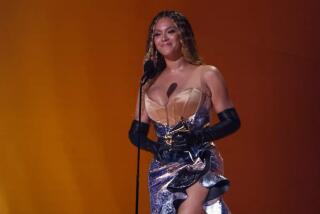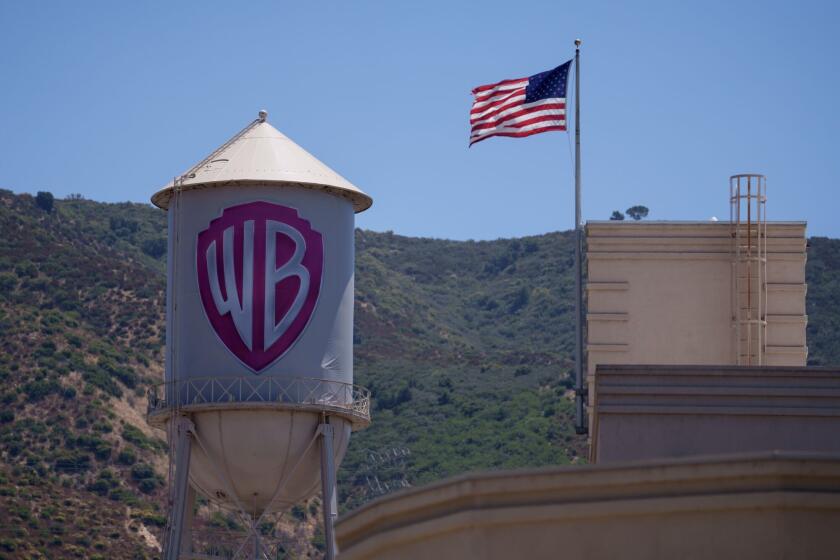The Brokers Call It Public Service, Others See It as Just the Opposite : Either Way, Scalping Involves Big Money
- Share via
SAN DIEGO — In July, 15-year-old Denise Heston made the trek from her home in Carlsbad to the box office at the San Diego Sports Arena to purchase two tickets to tonight’s George Michael concert. The concert had just been announced and, like thousands of other teen-agers in San Diego County, Denise wanted to be there.
When she got to the arena box office, Denise discovered that virtually every good seat in the house had been sold, so she went back to Carlsbad and checked with Trip Tickets, the neighborhood “ticket broker.”
For Denise, Trip Tickets had good news and bad. Yes, she was told, there were plenty of good seats available. But the price for the two 17th-row seats Denise eventually bought had escalated nearly 400% in their route from the Sports Arena to the broker’s office. Her tickets each had a face value of $22.50 printed on them. She paid $178 for the pair.
“Denise baby-sat and did odd jobs for months to earn this money,” Denise’s mother, Diane, wrote in a letter to The Times. “How can we expect our teen-agers to have a concept of values/monies when things like this happen? Why should they be victims of greed? How can we stop this kind of thing?”
There’s a reason that the reselling of tickets for huge profits is called “scalping,” and Denise Heston is either one more victim, as her mother believes, or one more satisfied customer, as ticket brokers claim. One thing is certain: Scalping is a major player in the big-bucks business of concert promotion.
During the past decade, ticket scalping has become increasingly common at rock concerts--not just in San Diego, but throughout the United States. It’s one more spin on supply-side economics--the hotter the act and the more tickets in the hands of brokers, the higher the prices brokers charge.
It is legal in California to resell tickets for profit. In fact, brokers spend huge amounts of money advertising their high-priced resales in daily newspapers. But it is illegal for promoters to sell tickets directly to brokers. So, the question becomes, how do so many tickets end up in brokers’ hands so soon after they’ve gone on sale at the box office and such authorized direct-sale outlets as Ticketron and Ticket Master?
Rick H. Cabados, president of the four-outlet Trip Tickets brokerage chain, readily acknowledges that he pays people to stand in line at the box office the day tickets go on sale for a major rock concert so they can scoop up the best available seats.
“We’re performing a service for the community,” Cabados said. “A lot of people who want good tickets don’t have the time to wait in line for hours themselves, so we’re essentially doing the waiting for them. And, quite often, it’s cheaper for someone to pay us $100 for a floor seat than to take a half day off work. It’s also a lot more convenient.”
Cabados added that not all tickets he sells are purchased directly from the box office.
“We’re constantly running ads in the paper, asking people to sell us their tickets,” he said. “And, if someone wants to see George Michael so bad that we have to give him $60 for his ticket, we naturally have to charge our customers more. We’re just like any other brokerage. Anytime somebody wants something, we go find it for them. And our customers dictate the market--if they don’t want to pay our prices, they don’t buy it.”
Others see brokers as providing a disservice to the community. By buying up the best tickets as soon as they go on sale--then reselling them at a profit--ticket brokers deprive the public of purchasing the tickets themselves at face value, said Phil Quinn, executive vice president and general manager of the Sports Arena.
“It’s just a bad situation,” Quinn said. “If it wasn’t for the scalpers, people would pay normal prices for tickets, and getting good seats would depend entirely on luck, not on how much you’re willing to spend.”
Past attempts at putting ticket brokers out of business have been unsuccessful. In 1977, the Legislature failed to pass two anti-scalping measures introduced by former San Diego Assemblyman Larry Kapiloff. The bills would have made it illegal for anyone to resell tickets for more than 15% above face value.
Since then, most local concert venues, including the Sports Arena, have imposed a limit on the number of tickets per event that they will sell to one person. For rock concerts, the limit is six. That didn’t have much effect on scalpers’ business, Quinn said.
“What’s happened is that scalpers simply send out more people to stand in line, buy the limit and then get back in line to buy more,” Quinn said.
He said the Sports Arena has recently started a new procedure when tickets for a major concert go on sale. Three hours before the box office opens, Quinn said, each person waiting is assigned a random number, then the line is dispersed. When the box office does open, people’s position in line is determined by the numbers given them earlier.
“But again, if a scalper hires enough people, he’ll get enough low numbers to still get most of the best seats,” Quinn said.
According to knowledgeable sources, there have been occasions when local concert promoters have sold blocks of premium tickets directly to scalpers. Marc Berman, one of San Diego’s leading concert promoters between 1975 and 1984, told The Times that he sold blocks of choice tickets to scalpers.
“We did it very infrequently, and, when we did, both the act and the agent knew about it,” Berman said. “In 1980, for example, we sold brokers 500 tickets to our Rod Stewart concert at the Sports Arena, each at $10 above face value. None of those tickets was in prime areas; we left the first 20 rows for the public. And the only reason we did it was because we had to. The way our deal was structured, there was no money in it for us, even with a sellout.
“So the $5,000 we made by selling tickets to brokers was our only profit. Without that profit, we probably wouldn’t have done the show. In fact, working with brokers was often the only way we could afford to bring some of these big acts into town.”
In 1980, the Consumer Protection Unit of the San Diego city attorney’s office investigated Berman’s practice of selling concert tickets directly to brokers. Berman ended up paying a $2,000 fine. Subsequent concert ads also included the disclaimer, “All seats may not be available for public sale.”
Current promoters insist they do not sell tickets to brokers. In 1985, when Kenny Weissberg took over the Concerts by the Bay series at Humphrey’s on Shelter Island, he received two phone calls from two ticket brokers he declined to name.
“They asked me if they could come down and talk to me about buying tickets, and to each one I politely said no, I wasn’t interested,” Weissberg recalled. “I was told early on in the business that the only way a promoter can make money was by scalping tickets and that everyone does it.
“But I can honestly say I never have, and I never will.”
John Nelson of Bill Silva Presents said his organization is prevented from selling tickets to brokers by the contracts written with the artists and their agents.
“If we wanted to make extra money, we would simply raise the price of all tickets, and share the proceeds with the act,” Nelson said.
Brian Murphy of Los Angeles-based Avalon Attractions said Avalon has decided not to get involved in ticket brokering for shows it promotes in San Diego.
Cabados, of Trip Tickets, declined to answer whether his brokerage has bought tickets directly from promoters in recent months.
“I prefer to say nothing,” Cabados said.
In newspaper ads, Trip Tickets has actively promoted tickets in the first 10 rows to the George Michael concert. An agent at Trip Tickets’ main San Diego office said Monday that there were still tickets available for the Michael concert in several sections, with top prices at $119 for seats in the 14th row.
Avalon’s Murphy said Trip Tickets could have gotten its premium tickets from a number of sources.
“When we announced the date, we received an overwhelming request for tickets from the record company, the building and local radio stations,” Murphy said. “Those tickets could have come from any one of those sources.”
Meanwhile, time has not eased Diane Heston’s anger over the money her daughter spent nearly three months ago. She said Sunday that, only a few days ago, one of Denise’s girlfriends paid $170 for a 17th-row ticket to the Michael concert.
That’s nearly double what Denise paid, which means Denise might have turned a handsome profit herself, had she put her tickets on sale.
“Yes, she probably could have,” Diane Heston said. “But I think it’s dishonest, and she wouldn’t do it. Besides, it’s someone she’s always wanted to see. George Michael is one of her idols, sort of like what Elvis Presley was for me.”
And no, said Heston, she would not have paid $178 for a pair of tickets to see Elvis.
“I couldn’t afford it,” she said.
More to Read
The biggest entertainment stories
Get our big stories about Hollywood, film, television, music, arts, culture and more right in your inbox as soon as they publish.
You may occasionally receive promotional content from the Los Angeles Times.










